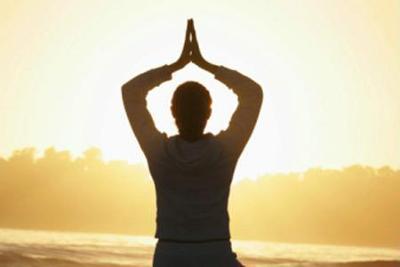
Indian school children performing Surya Namaskar
The petition bases its demand on Article 21 of the Constitution.
Over a year after a California appeals court declared Yoga “secular” and not a means to advance or inhibit Hinduism, the Supreme Court has agreed to hear on whether Yoga is an inherently religious ritual or a secular pursuit for good health and a dignified life.
A Bench led by Chief Justice of India T.S. Thakur has agreed to hear on November 7 whether Yoga should be made compulsory for students of Class one to eight.
The petition, which quotes the U.S. court ruling, was filed by advocate Ashwini Kumar Upadhyay, who has also sought a direction to the government to frame a National Yoga Policy, saying that right to health was part of the right to lead a dignified life under Article 21 of the Constitution.
The plea, which has made the Ministry of Human Resources Development, NCERT, NCTE and the CBSE parties, sought a direction to “provide standard textbooks of ‘Yoga and Health Education’ for students of Class one to eight, keeping in spirit various fundamental rights such as right to life, education and equality.”
“The State has an obligation to provide health facilities to all the citizens, especially to children and adolescents. In a Welfare State, it is obligation of the State to ensure the creation and sustaining of conditions congenial to good health,” the plea said.
“There are about 20 crore children, throughout the country, studying in primary and junior classes at the cost of public exchequer. Yoga should be taught to them as a compulsory subject as per National Curriculum Framework 2005 notified under Section 7(6) of the Right of Children to Free and Compulsory Education Act 2009,” it said.
It also sought a direction to the Ministries of Women and Child Development and Social Justice and Empowerment to declare the first Sunday of every month as Health Day on the lines of Polio Day to make people aware about health hazards and hygiene.
Keywords: Supreme Court, yoga
[“source-smallbiztrends”]

